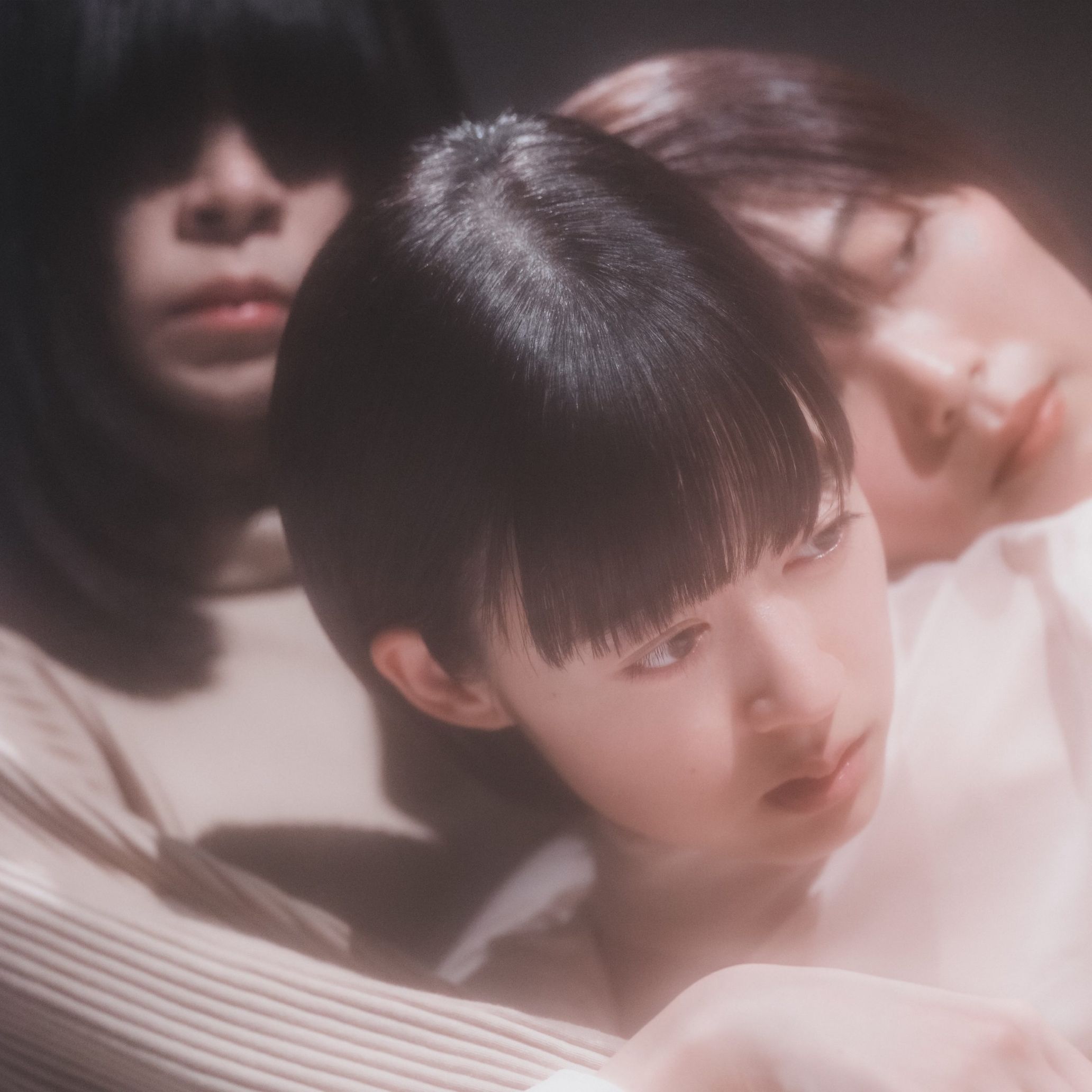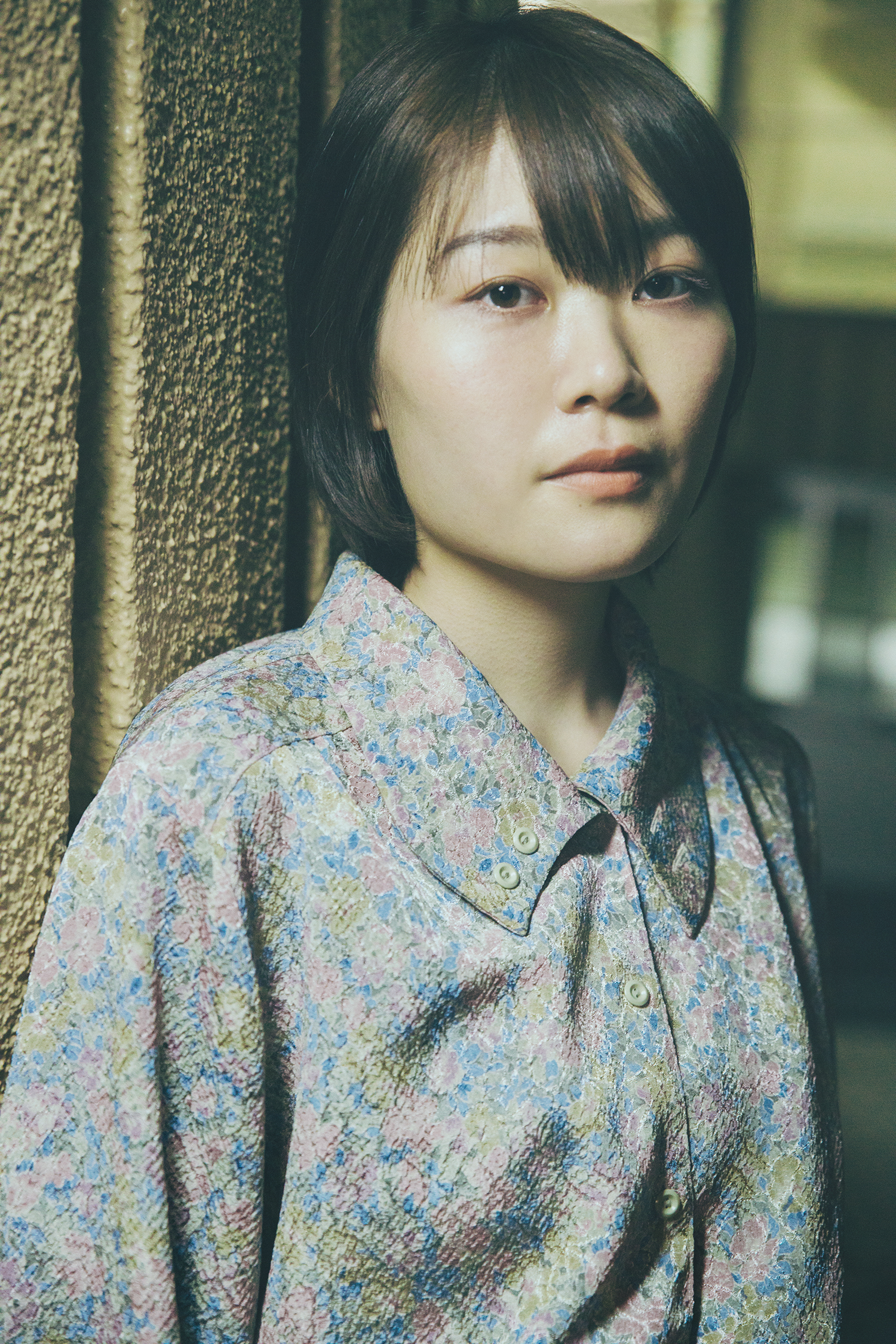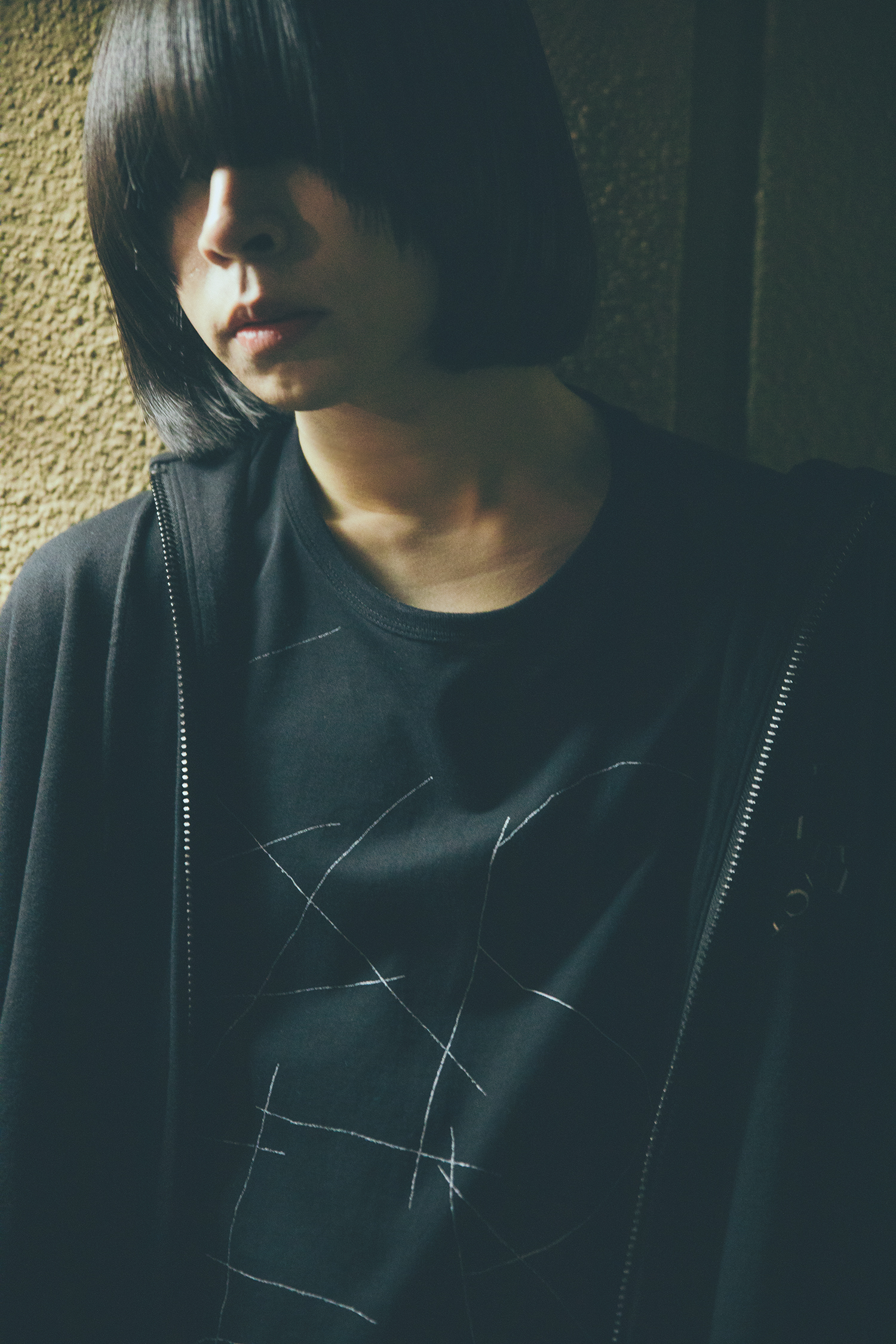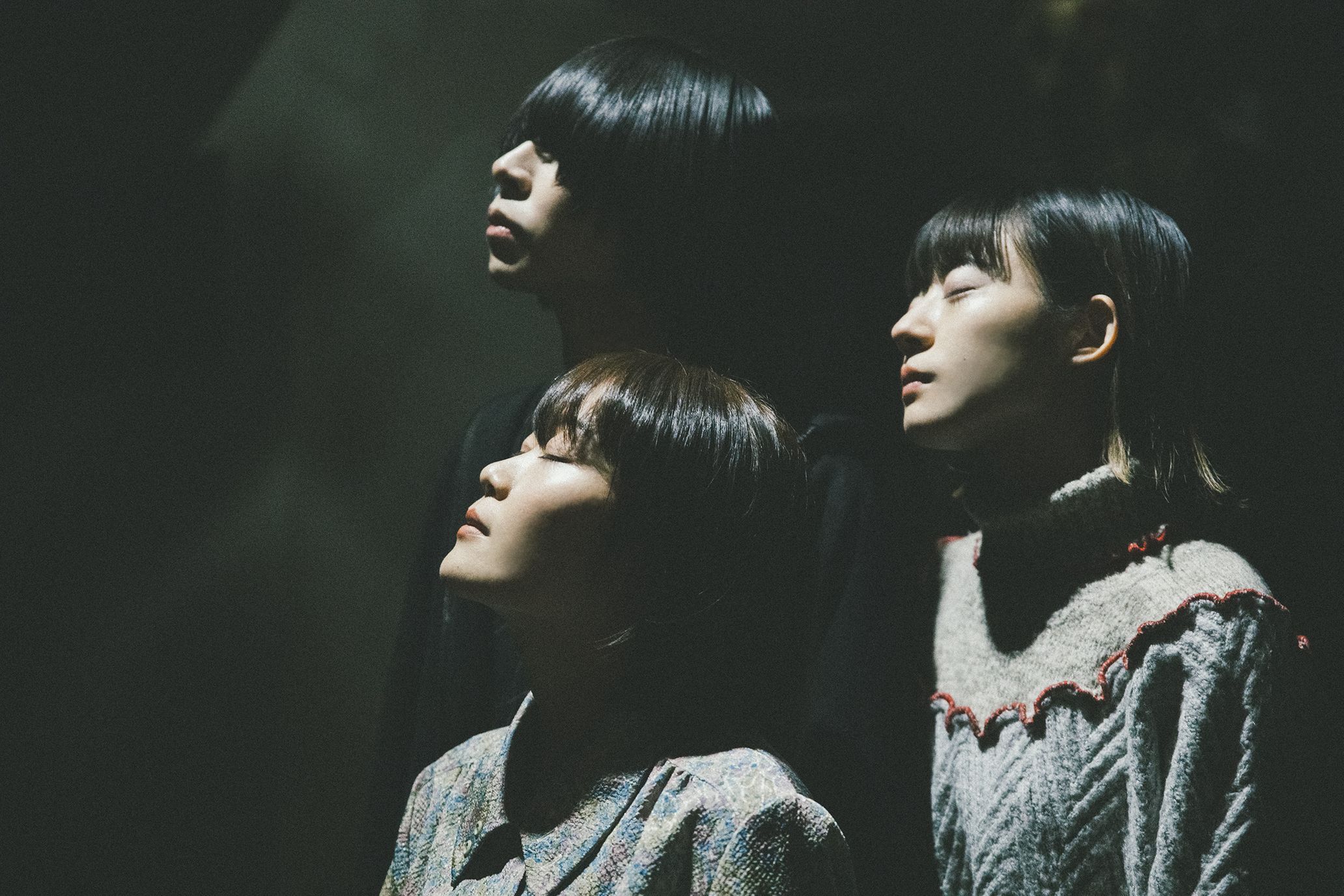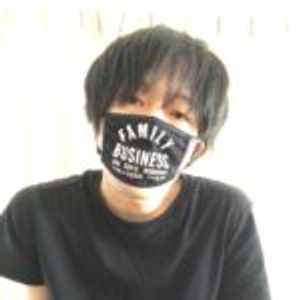Hitsujibungaku’s album POWERS begins with feedback noise echoing in the studio. After that, the drums count four, leading to a heavy floor tom rhythm pattern along with the bass playing the root of the chord and a fuzz guitar. In 2020, when it was impossible to even practice together in a studio, the band has made their debut with a major music label, like a thunderous roar vibrating through the feeling of loneliness that this year had in store for us. In this interview, we asked the three members of the band about their latest work.
Moeka Shiotsuka: “There’s no specific reason behind the beginning of the album, but we definitely felt like we wanted to flip this whole situation with our first blow. I mean, If you stay in your room all day, you’re just going to get stressed. Also, I’m the type of person who just wants to go and wreck everything; I’ve always been like this (laughs).”
POWERS depicts the bittersweet feelings of the people living in our society, and at the same time, it’s also a direct projection of Moeka’s state of mind, as she says herself.
“This album is full of me; specifically, it’s the me from when I was making it. As always, every song in it is about what I was thinking. However, when I read it back, the main character is someone else for some reason. On top of that, everyone is troubled by something, even in “Aimai de ii yo” (in Japanese, it’s fine to be vague). So basically, I end up thinking that maybe it shouldn’t be vague.”
Moeka apparently didn’t have a definitive concept in mind while making the album, but she was confident about the order of the songs.
Moeka Shiotsuka: “Hitsujibungaku’s other CDs so far all have the darkest song in the album before a brighter one, somehow ending in a refreshing way. If I were still my former self, I would’ve probably brought ‘Aimai de ii yo’ after ‘ghost.’ However, I wanted to start this album with ‘mother’ and end it with ‘ghost.’ In that way, even though every song is talking about different things, they still feel like one individual story.”
After sharing their tracks, the trio starts building an appropriate sound and rhythm pattern for each song.
Yurika Kawanishi: “I can’t say much about music theory, but I had a clear image of each song for this album, and I did a lot of trial and error to find the sound that would match every one of them.”
Hiroa Fukuda: “Building the sound for this album went pretty smoothly: the kind of sound I personally like and what the kind of sound the songs needed were very close. For example, I tend to prefer low-pitched sounds, so I thought about how to change snare pitch according to that, or I used cymbals with a darker sound; I think I was able to pick the right equipment and sound for all twelve songs.”
“During the quarantine period, we tried to make music through DAWs, but nothing came out of it. I guess that recording at home is not an option for us, and if we can’t play in a studio, the band could break up. That’s why I felt something special when the three of us went to the studio at the beginning of June. It feels good to share what’s in your mind and give it shape in real-time; it’s especially good if you do it loudly.”
-Moeka Shiotsuka
The feeling of conflict in POWERS, and the power of online live performances
New album is titled POWERS, written in the plural form. I can see a connection to their previous album Wakamono-tachi e(In Japanese, to young people), but is there a specific reason for that?
“It’s simply because all the songs in it are powerful, and I wondered if it should be in plural form. When I looked it up, I found out that the word ‘powers’ can also imply ‘authority,’ or ‘pressure.’ Apparently, you also put an ‘s’ when talking about ‘magic powers.’ I wanted this album to act like some sort of protective amulet, and I thought that ‘power’ would be a good word for that. The fact that this word contains so many contradictory meanings can also be seen as the feeling of conflict expressed by this album.“
-Moeka Shiotsuka
On the other hand, in the refreshing and dynamic title track “powers,” your voice unusually sounds straightforward, like a faint ray of hope for the future.
“I originally wrote this song at the same time as ‘Ningen datta’ (In Japanese, we were human beings), which was released in 2019 as a single. Many large-scale demonstrations were going on in Hong Kong in those days, and I found myself thinking about society, so I wrote this song thinking that if people spoke out more, the future could get better. After a while, I tried to listen to the song more impartially, and I thought that what I thought earlier wasn’t true at all, so I decided to drop it. However, this year has especially seen a lot of depressive moments, and I often wished to have someone who could cheer me up; that’s when I understood that I needed that person who’d irresponsibly just tell me that ‘everything’s ok.’ The arrangement changed from time to time too, and a lot happened until we could finish the song.”
In 2021, the global pandemic doesn’t seem to be ending anytime soon, as well as this period of hardships for artists. Under such circumstances, Hitsujibungaku, who held an online tour last summer before anyone else, has found new ways to survive for the future.
Moeka Shiotsuka: “Until now, music production and live performances were our everything, but with the addition of live streaming, we can do things that we would’ve never imagined before. I’ve never thought it’d become possible to perform live in VR, where you can put together stage sets that couldn’t exist in real life; I would like to look a bit more into that.”
Hiroa Fukuda: “The performance is archived online, so the way you feel nervous is different from a normal live show. People from all around the world can see it, which is a big plus.”
Yurika Kawanishi: “It felt more like a recording session than a live performance: our formation was different, and after we were done recording, we even adjusted the mix, so it was a bit like making a track. I don’t want to forget how it feels to stand on a stage, though.”
“By growing little by little, I hope to become an adult woman someday”
By getting signed by a major music label, Hitsujibungaku has reached a turning point in its career. By listening to POWERS, one can feel the trio’s general anxiety towards the future, as well as the pure excitement in their performance. On the other hand, it actually feels like the band hasn’t changed at all from the carefree times in which they were making Wakamono-tachi e. In “drama,” one of the songs included in the previous album, they sing about the end of adolescence; do they think that this time of their life will eventually be over?
Moeka Shiotsuka: “I think it’s going to end soon, but somehow it’s not ending yet. You can see it in the way I dress too; I want to become an adult, but I really can’t, and I’ve had this inner conflict for a long time. Maybe I’m a bit softer compared to when I was a student, though. I used to complain a lot about the world, but recently I have less and less to say. I’ve gradually come to realize that everyone writes so many love songs because it’s the most exciting part of their lives. However, that also worries me. By growing little by little like that, I hope to become an adult woman someday.”
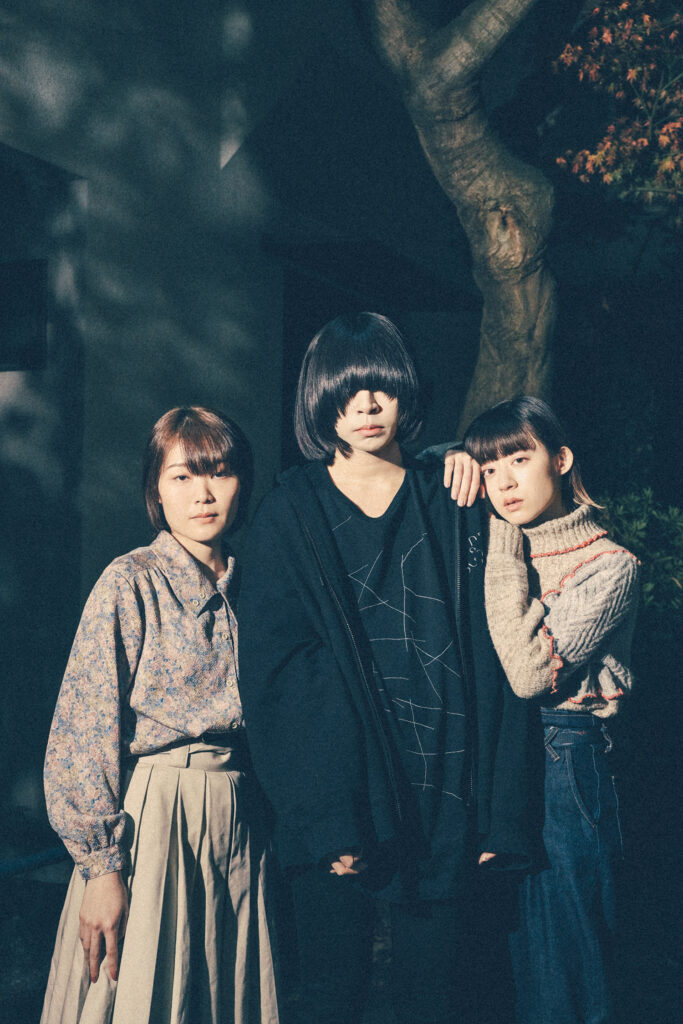
Hitsujibungaku
An alternative rock band comprising Moeka Shiotsuka (Vocals, Guitar), Yurika Kawanishi (Bass), and Hiroa Futada (Drums), with a particularly delicate yet powerful sound. The current member formation started its activity in 2017 and released four EPs, two full albums including POWERS, and the limited edition single 1999 / Ningen datta. In 2020, the trio organized a live tour for the release of their EP Zawameki, which sold out in all locations. On August 19, 2020, Hitsujibungaku signed with major music label F.C.L.S. (Sony Music Labels) and released Sabaku no Kimi e / Girls. On December 9th, the band released the album POWERS. The band will host and perform the online live performance “Tour 2021 Hidden Place,” on March 14, 2021.
Photography Yuri Nanasaki
Translation Leandro Di Rosa

